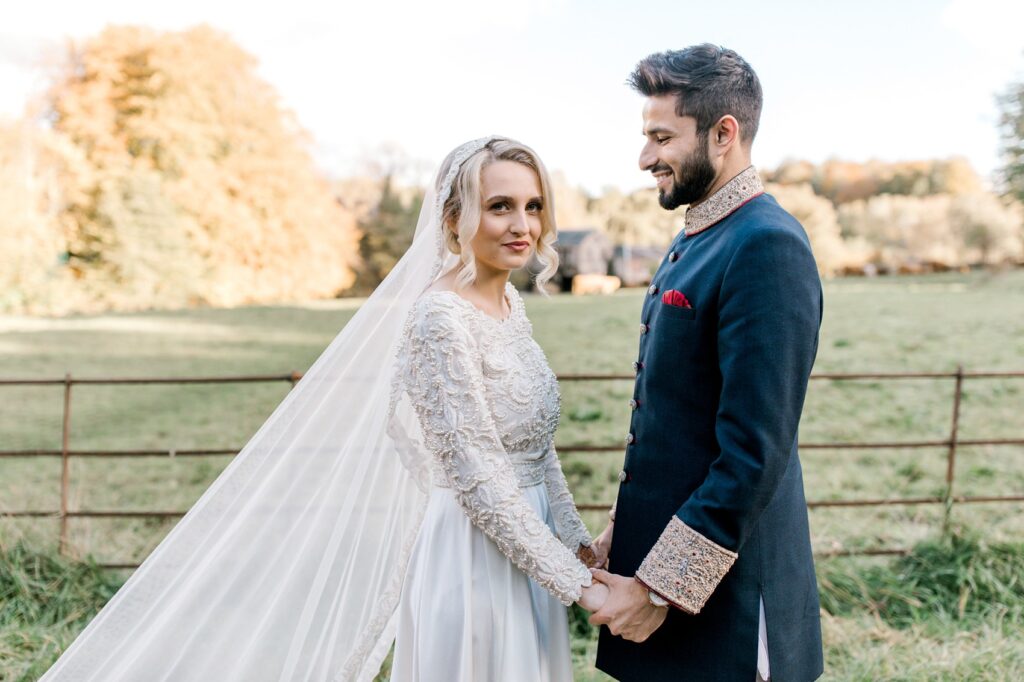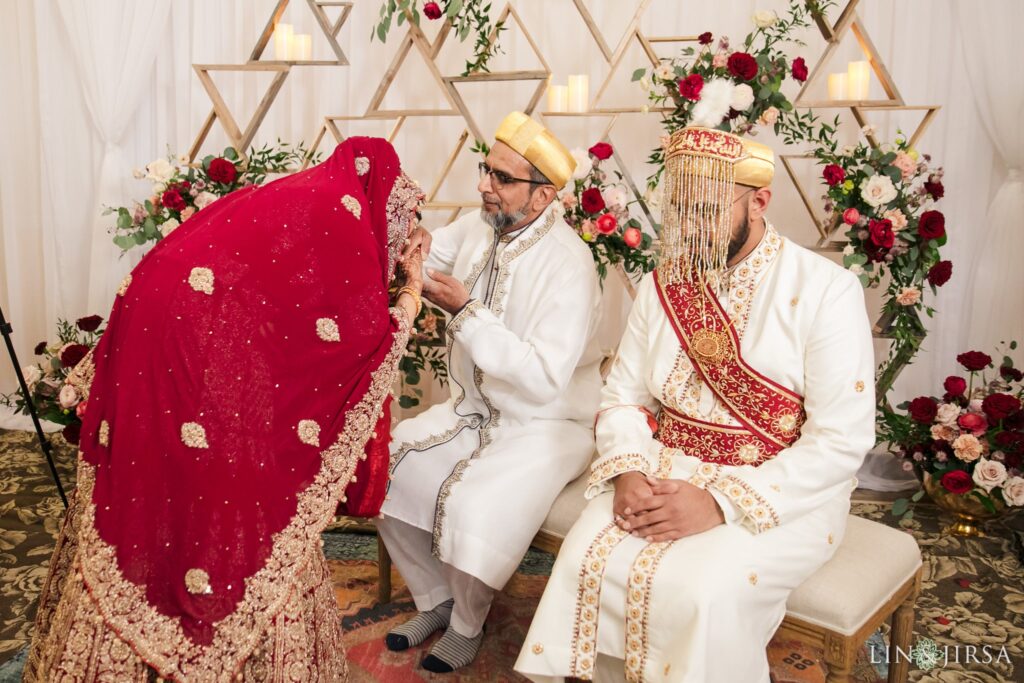Court Marriage Fees in Karachi &
Court Marriage Process in Karachi
Understanding Court Marriage Fees and Process in Karachi

Introduction to Court Marriage in Karachi
Court marriage fees in Karachi and court marriage process in Karachi is explained here. The notion of court marriage in Karachi represents a legally binding union officiated through legal parameters rather than traditional ceremonies. This type of marriage offers an alternative for those who prefer simplicity or need to circumvent complex societal customs. Additionally, court marriage is often seen as a more practical choice for couples struggling to gain familial or community approval for their union. With court marriage, decisions are reposed on legal documentation rather than subjective societal norms.
Court Marriage in Karachi: Simplifying Legal Union Without Elaborate Ceremonies
As opposed to the ritualistic approach typical in many traditional marriages, opting for a court marriage in Karachi primarily focuses on fulfilling legal requisites. Such marriages are conducted before a judicial magistrate, making the union official without relying on elaborate ceremonies. This method appeals to diverse groups, including interfaith couples, expatriates, and individuals desiring an uncomplicated legal assertion of their relationship. The mandatory documentation ensures all legal aspects are sufficiently covered, providing secure legal backing to the union.
Court Marriage in Karachi: Navigating Legal Requirements and Modern Trends
Moreover, the legal groundwork for court marriage in Karachi is embedded within the laws of Pakistan. According to Pakistani law, a couple must comply with requirements such as age, consent, and absence of impediments like existing marriage bonds. These requirements help ensure that both parties are entering the marriage voluntarily and are legally eligible. Over time, the option of court marriage has gained increasing recognition, reflecting a shift towards more pragmatic, inclusive, and personal approaches to marriage in Karachi.
Understanding Court Marriage Fees n Karachi
An understanding of the fees and detailed process involved is critical when considering this legal route. Clarity on these facets can contribute to a seamless transition from engagement to legal union, putting forth a clear path for couples lodging their court marriage documents in Karachi.
Break-up of Court Marriage Fees in Karachi
The structure associated with court marriage fee in Karachi can be complex, encompassing various components such as government fees, Nikah Khawan and Nikah Registrar’s fees, and attorney fees. Understanding these fees is crucial for accurate budget planning. Government fees are usually the starting point in calculating the court marriage expenses. These are standardized charges set by government authorities required for the legal registration of the marriage. Typically, this fee ranges from PKR 500 to PKR 1,000, depending on the specific requirements and regional mandates.
In addition to government fees, Nikah Khawan and Nikah Registrar’s fees also play a role. These fees also cover the administrative and miscellaneous expenses involved in processing and recording the marriage at the courthouse. This cost can vary but is generally between PKR 10,000 and PKR 15,000. It is also imperative to consider any additional charges that might arise if the marriage needs notarization or certification beyond standard procedures.
Attorney fees are another significant component of the overall cost structure for court marriage in Karachi. While some couples may choose to navigate the process independently, hiring an attorney ensures that all legal requisites are meticulously handled. Attorney fees can vary based on the complexity of the case and the attorney’s expertise, typically ranging from PKR 10,000 to PKR 25,000. This expense might seem significant but can be invaluable in mitigating legal complications.
Other potential costs may include expenses for acquiring necessary documents such as national identity cards, birth certificates, and affidavits. These incidental costs can add up to a few thousand rupees, depending on individual circumstances and document availability.
In summary, couples planning a court marriage in Karachi should anticipate a cumulative expense that could range from PKR 25,000 to PKR 35,000. This estimation includes government fees, documentation expenses, Nikah Khawan/Nikah Registrar’s fees, and attorney fees, while keeping room for ancillary costs. Proper budgeting ensures a smoother and more predictable court marriage process. By understanding each expense component, couples can make informed decisions and manage their financial planning effectively.
Legal Prerequisites for Court Marriage in Karachi
Essential Legal Prerequisites for Court Marriage in Karachi: Age Requirements and More
Before proceeding with a court marriage in Karachi, couples must fulfill several legal prerequisites that ensure the union is valid under Pakistani law. Understanding these requirements will streamline the process and prevent any legal complications. One of the foremost criteria is the age requirement: the minimum age for males is 18, while for females, it is also 18 as per Pakistani law. Individuals below these ages cannot legally enter into a marriage contract.
Consent and Witnesses: Key Prerequisites for Court Marriage in Karachi
Consent is another critical prerequisite. Both parties must willingly agree to the marriage without any coercion or undue influence. Proof of this consensual agreement typically involves the presence of witnesses during the court marriage proceedings, as well as their signatures on the marriage registration documents.
Essential Documentation for Court Marriage in Karachi: CNICs, Photos, and More
Documentation is a pivotal component of the court marriage process in Karachi. Prospective couples must provide valid CNICs (Computerized National Identity Cards) or passports if one of the parties is a foreign national. Additionally, recent passport-sized photographs of both individuals are required. In cases where one or both parties have previously been married, certified copies of the divorce certificate or death certificate of the former spouse must be submitted.
Residency Requirements for Court Marriage in Karachi
Regarding residency, there are no stringent laws mandating that both parties need to be residents of Karachi. However, providing proof of residency can sometimes facilitate the process and ensure there are no delays. It is also essential to consult local court officials to understand any specific residency requirements that may occasionally apply.
Legal Frameworks Governing Court Marriage in Karachi: Key Statutes and Compliance
Legal statutes govern court marriages in Karachi, primarily under the Muslim Family Laws Ordinance, 1961, and the Family Courts Act, 1964. Understanding these legal frameworks is crucial for ensuring all procedures are followed correctly, ultimately leading to a hassle-free court marriage in Karachi. Being well-informed about these legal prerequisites will aid in a smooth, legally compliant matrimonial process.
Step-by-Step Court Marriage Process in Karachi
Embarking on the adventure of court marriage in Karachi necessitates an understanding of the procedural labyrinth. This guide is designed to elucidate each step, thereby demystifying the entire process for aspiring couples. First and foremost, couples are required to contact us or some other family lawyer and submit their identification details, such as CNIC copies and 6 copies of passport-sized photographs. In addition, a formal intent to marry document must be signed by the female partner. Other essential documentation may also be required including divorce decrees or death certificates from previous marriages, if married before. Witnesses, often family or friends, need to be prepared with valid identification proof to affirm their intentions.
Navigating the Court Marriage Process in Karachi: A Guide for Aspiring Couples
The presence of witnesses is crucial as they corroborate the statements provided and the Nikah solemnized. Both members of the couple must declare their willingness to enter into the marriage without any external pressure. After the affidavit, the Nikah as per Shari’a will be solemnized in the presence of the attorney and witnesses. The Nikah Nama shall be filled with the necessary information and signed by both, the bride and groom, the Nikah Khawan, and the witnesses. The Nikahnama serves as the official documentation confirming the legal binding of the marriage. Couples are advised to keep multiple copies for future reference, particularly for legal and administrative purposes.
Ensuring a Smooth Journey Through the Court Marriage Process in Karachi
Understanding and following these steps ensures a systematic and efficient journey through the court marriage process in Karachi. With meticulous preparation and adherence to legal requisites, couples can navigate the process seamlessly.
Essential Documentation for a Hassle-Free Court Marriage in Karachi
When planning for a court marriage in Karachi, ensuring you have the correct and complete set of documents is crucial to avoid any potential delays or legal complications. The documentation required typically includes several key items, each serving its purpose in the legal marriage process.
CNICs of the Marrying Couple
The primary documents required are valid Computerized National Identity Cards (CNICs) of both parties entering the marriage. These serve as proof of identity and age, which must be 18 years or older according to Pakistani law. Ensure that both CNICs are not expired and that all personal details match the information on other submitted documents.
Photographs of the Couple
Two passport-sized photographs of each party are also required. These photos are used for record-keeping and verification purposes. It is important to ensure these photographs are recent, clear, and professionally taken to meet the official standards.
Affidavit Declaring Free Will of the Bride For Court Marriage
An affidavit of free will must also be prepared by the bride, stating the clear intention to enter into a marriage agreement without any coercion. These legal documents confirm that the bride is freely consenting to the marriage and are of sound mind. The affidavit should be correctly drafted and notarized to meet legal standards in Karachi.
Witness Documents
Two witnesses are required to attest to the marriage. Each witness must provide a copy of their valid CNIC and be present during the marriage process. Their documentation needs to be current and verifiable to support the authenticity of the marriage process. Attested documents from witnesses affirm their presence and acknowledgment of the marriage ceremony.
Ensuring Accuracy: A Key Step for a Smooth Court Marriage Process in Karachi
To streamline the process and ensure no details are overlooked, it is advisable to meticulously check each document for accuracy and completeness. Any discrepancies, such as mismatched information or expired documents, can lead to delays. Therefore, paying careful attention to the documentation requirements is a key step towards a seamless court marriage in Karachi.
Legal Rights and Responsibilities Post-Court Marriage
Following the finalization of court marriage in Karachi, individuals acquire several legal rights and responsibilities that are critical to understanding. One of the foremost implications is the official recognition of the marital union by the state, which warrants equal treatment under the law. This includes the full set of marital rights that couples from religious ceremonies receive.
Property rights emerge as a significant aspect of post-marriage. The law ensures that both spouses have joint ownership and equal say in the management of any property acquired during the marriage. This equitable distribution extends to the event of a divorce, where the assets are divided as per legal guidelines to ensure fairness.
Regarding divorce laws, court marriages in Karachi adhere strictly to Pakistani family law. Couples must navigate a legally binding framework that dictates the dissolution of marriage, division of property, alimony, and child custody arrangements. Individuals must seek proper legal counsel to understand their rights and obligations completely during such proceedings.
Importantly, legal recognition is extended to interfaith and foreign marriages as well. Interfaith couples are granted the same marital rights and protections under the law, provided all legal prerequisites are met at the time of marriage registration. Similarly, foreign nationals marrying in Karachi will have their marriage legally recognized both locally and, typically, internationally, depending on the diplomatic agreements and specific laws of their home countries.
Overall, securing a court marriage in Karachi not only simplifies the legal process but also ensures that all legal rights about marital, property, and familial matters are honored. Understanding these rights and responsibilities is foundational for couples to navigate married life legally and effectively.
Common Challenges and Solutions in Court Marriage
Engaging in a court marriage in Karachi can sometimes present a series of challenges that couples must navigate thoughtfully. One common hurdle comprises bureaucratic delays. The court marriage process, often laden with extensive paperwork and procedural formalities, may lead to unexpected time lags. To address this, couples should meticulously prepare and organize all necessary documents beforehand. Procuring a checklist from a reliable source can mitigate the risks of missing essential documentation, thereby expediting the process.
Finding reliable legal assistance is another critical aspect where aspiring couples often face difficulties. The intricacies of court marriage in Karachi necessitate the expertise of a competent legal advisor who can guide them through each step. To ensure they are engaging a trustworthy advocate, couples should seek recommendations from family and friends or consult with legal firms known for their proficiency in court marriage matters. Securing proficient legal counsel can greatly smooth out the procedural hiccups and enhance the overall experience.
Societal or familial opposition can also pose significant challenges for couples opting for court marriage. In a cultural context where traditional marital arrangements are highly esteemed, defying such norms might invite disapproval or resistance. It is imperative for couples to communicate openly with their families, explaining their motives and the legal benefits associated with a court marriage. In some cases, seeking mediation from a neutral, respected family member or counselor could bridge understanding gaps and promote acceptance.
Ultimately, traversing the landscape of a court marriage in Karachi requires strategic planning, adept legal support, and open communication. By anticipating potential challenges and proactively seeking solutions, couples can streamline the court marriage process, thereby reducing stress and ensuring a smoother transition to marital life.
Tips for a Smooth Court Marriage Process in Karachi
Navigating the court marriage process in Karachi can seem daunting, but with the right preparation and guidance, it can be a seamless experience. One key aspect to consider is pre-marriage counseling. While often overlooked, counseling can help couples address any concerns or questions about their future together, ensuring a strong foundation before taking the legal step.
Obtaining legal advice is equally important. Consulting with a legal expert familiar with court marriage in Karachi can provide clarity on the requirements and legal implications. Lawyers can assist in understanding the intricacies of the process and help avoid any potential legal pitfalls. Their expertise can be invaluable, especially if there are any cultural or familial objections.
Preparation of documents well in advance cannot be overstressed. The primary documents required for a court marriage in Karachi include national identity cards, affidavits affirming the free will of both parties, and witnesses’ identification. Having these documents ready beforehand will streamline the process and reduce any last-minute stress. It’s advisable to double-check the documents for accuracy and validity.
Lastly, understanding the cultural context is crucial. Karachi is a melting pot of diverse cultures, and being sensitive to these differences can mitigate potential issues. Respecting cultural norms and values, while still adhering to legal procedures, can foster a smoother transition for the couple. This may involve discussions with family members and ensuring that all parties are comfortable with the court marriage process.
By following these tips—engaging in pre-marriage counseling, seeking legal advice, preparing documents early, and understanding cultural nuances—couples can approach their court marriage in Karachi with confidence and ease, ensuring that this important milestone is both legally sound and personally fulfilling.
Consult Our Legal Experts for Personalized Guidance
We recommend consulting our legal experts for further insights and detailed information specific to your situation. Our team can provide personalized guidance and assistance regarding court marriage fees and procedures in Karachi, Pakistan. Whether you have questions about the cost breakdown or require assistance with the court marriage process, our experienced professionals are here to help.
Contact us today to schedule a consultation and take the first step towards a smooth, hassle-free court marriage experience. Let us navigate the legal complexities on your behalf, ensuring compliance with all requirements and facilitating a seamless marriage registration process.

Understanding Court Marriage in Karachi
Court marriage, also known as civil marriage, is a legal union between two individuals solemnized before a court of law rather than through traditional religious ceremonies. In Karachi, court marriage offers a convenient and legally recognized alternative for couples seeking to formalize their relationship without religious constraints.
Legal Framework For the Court Marriage:
Court marriages in Karachi are governed by the provisions of the constitution of Pakistan and the Family Laws Ordinance, 1961. This ordinance allows individuals of any religion or faith to marry through a religious ceremony and provides the legal framework for court marriages, ensuring they are valid and enforceable under Pakistani law. Overview of Shariah Compliance: Karachi court marriages are legal and adhere to Shariah principles.
Legislation: The process is governed by the Muslim Family Laws Ordinance 1961.
Importance of Confidentiality
Private Proceedings: Court marriage ensures a confidential and intimate setting for the couple.
Avoidance of Social Scrutiny: Couples can avoid unnecessary social scrutiny by opting for court marriage.
Legal Expertise at Your Service
Guidance from Experienced Lawyers: Legal professionals specializing in court marriages provide expert advice.
Ensuring Compliance: Lawyers ensure that all legal requirements are met with precision.
Simplified Documentation Process:
Documentation Requirements: The documentation process for court marriage is simplified.
Efficiency and Accuracy: Legal experts assist in compiling necessary documents efficiently and accurately.
Budget-Friendly Approach:
Cost-Effective Solution: Court marriage is often more budget-friendly than elaborate traditional ceremonies.
Transparent Fees: Legal professionals offer delicate fee structures for their services.
Confidentiality Measures in Court Marriage Services
Private Consultations: Legal firms prioritize private consultations to address the couple’s needs.
Data Security: Robust confidentiality measures ensure the protection of personal information.
Streamlined Court Marriage Process
Step-by-Step Guidance: Couples receive comprehensive step-by-step guidance throughout the court marriage process.
Minimized Bureaucratic Hassles: Legal experts help navigate bureaucratic procedures, minimizing hassles.
Legalization and Documentation
Ensuring Legality: Court marriages are legalized through proper documentation.
Issuance of Nikah Nama: The official marriage certificate, known as Nikah Nama, is issued after the court marriage.
Shariah Compliance and Court Marriage
Respecting Religious Principles: Court marriages respect and uphold Islamic principles.
Qualified Nikah Khawan: A qualified Nikah Khawan ensures Shariah compliance during the ceremony.
Confidentiality Beyond the Ceremony
Data Retention Policies: Legal firms implement secure data retention policies post-ceremony.
Privacy Even After Marriage: Couples can be assured of ongoing confidentiality even after the court marriage is completed.

Court Marriage in Karachi: Choosing a Confidential and Hassle-Free Path:
Commencing on a court marriage journey in Karachi offers couples a confidential, budget-friendly, and legally sound alternative. With the assistance of experienced legal professionals, the process becomes a streamlined and hassle-free endeavor, ensuring that the sanctity of marriage is preserved while respecting the couple’s privacy.
Court Marriage Fees: Understanding the Cost Structure
Court marriage fees can vary based on several factors, reflecting each case’s complexity and unique conditions. Generally, the fees for court marriages in Karachi range from 25,000/- to 35,000/-. Here’s a breakdown of the critical aspects related to court marriage fees:
Factors Influencing Court Marriage Fees
Case Complexity: The complexity, including any specific legal nuances, can impact the overall fees.
Urgency: Cases requiring expedited processing may incur additional charges due to the need for swift legal actions.
Documentary Requirements: The number and nature of documents required for court marriage contribute to the fee structure.
Court Marriage Fees: Initial Consultation and Case Evaluation
Complimentary Consultation: Many legal firms offer an initial consultation free of charge to assess the details of the case.
Case Evaluation: During the consultation, the legal professional evaluates the complexity and requirements of the case.
Transparent Fee Structures:
Clear Fee Disclosures: Reputable legal firms provide clients with transparent and clear information about the fee structure.
No Hidden Charges: Clients are informed about any additional charges or potential fees related to their case.

Basic Court Marriage Fee Range:
Standard Fees: In most cases, the basic court marriage fees typically fall within the range of 20,000/- to 50,000/-.
Inclusions: This fee often includes legal guidance, document preparation, and representation during court proceedings.
Court Marriage Fees: Customized Services and Additional Charges
Tailored Legal Assistance: Some cases may require specialized services, leading to adjustments in the fee structure.
Additional Services: If clients opt for additional services beyond the standard package, such as document attestation, additional charges may apply.
Negotiation and Fee Agreements:
Room for Negotiation: Clients may have room for negotiation with legal professionals regarding the fee structure.
Fee Agreements: Clear fee agreements are established, outlining the scope of services covered by the agreed-upon fees.
Fee Payment Plans:
Flexibility in Payments: Legal firms may offer flexible payment plans to accommodate clients’ financial situations.
Installment Options: Clients may have the option to pay the fees in installments, easing the financial burden.
Value for Money:
Comprehensive Services: Clients can expect value for money and receive comprehensive legal services that cover all aspects of the court marriage process.
Legal Expertise: The fees reflect the expertise and legal support experienced professionals provide.
Ensuring Cost-Effectiveness:
Comparative Analysis: Clients are encouraged to conduct a comparative analysis of fees among different legal firms.
Balancing Cost and Quality: Striking a balance between cost-effectiveness and the quality of legal services ensures a satisfactory experience

Open Communication on Fees:
Client-Attorney Communication: Open communication between clients and their legal representatives ensures clarity on the fee structure.
Addressing Concerns: Clients are encouraged to address any fee-related concerns or queries during the initial consultation.
Informed Decision-Making for Court Marriage Fees
Understanding the factors influencing court marriage fees and the transparency legal professionals provide empowers individuals to make informed decisions. By engaging in open communication and exploring the various aspects of the fee structure, clients can navigate the court marriage process with confidence, knowing they are receiving value for the fees incurred.
Court Marriages Services: Your Confidential Journey at Courtmarriagelaw.com
Court marriage is a significant life event, and at courtmarriagelaw.com, we ensure that this process is seamless and wrapped in a veil of confidentiality, respecting your privacy. Here’s why choosing our services promises a court marriage experience with minimal effort on your part:
Effortless Initiatives, Seamless Outcomes
Streamlined Processes: Our expert legal team ensures that the entire court marriage process is streamlined, requiring minimal effort from our clients.
Efficiency: From document preparation to court proceedings, we handle the intricacies, allowing you to focus on the joyous occasion.
Comprehensive Legal Support
Dedicated Legal Professionals: Our team of seasoned legal experts is dedicated to providing comprehensive support throughout your court marriage journey.
Guidance and Representation: From the initial consultation to finalizing legalities, we guide and represent you at every step.
Confidentiality as Our Pledge:
Privacy Safeguard: We understand the importance of confidentiality in court marriages and pledge to safeguard your privacy at every juncture.
Secure Data Handling: Robust measures are in place to ensure that your personal information remains safe and confidential.

Transparent Communication:
Open Lines of Communication: Transparency is the cornerstone of our services. We maintain open communication channels, keeping you informed throughout the process.
Addressing Concerns: Any queries or concerns you may have are promptly addressed, fostering trust and confidence in our services.
Tailored Solutions for Every Couple:
Customized Approaches: We recognize that each court marriage is unique. Our services are tailored to meet every couple’s specific needs and preferences.
Flexibility: We offer flexible solutions to accommodate diverse scenarios, whether it’s a simple court marriage or one with additional requirements.
Minimal Client Involvement:
Efficiency in Documentation: Our team efficiently manages the documentation process of court marriage, reducing the need for extensive client involvement.
Legal Formalities Handled: Leave the legal formalities to us; you can focus on celebrating the union without the burden of bureaucratic hassles.
Cost-Effective Solutions:
Transparent Fee Structures: Our commitment to transparency extends to our fee structures. You’ll find clear and straightforward details about the costs involved.
Value for Money: We strive to offer cost-effective solutions, ensuring that you receive excellent value for your investment in our services.
Ensuring Shariah Compliance:
Respecting Religious Principles: We ensure that the process adheres to Islamic principles for couples seeking Shariah-compliant court marriages.
Qualified Nikah Khawan: Our services include a qualified Nikah Khawan, who ensures the ceremony aligns with religious standards.
Global Accessibility:
Catering to Diverse Locations: Our online platform makes court marriage accessible to couples residing in different geographical locations.
Virtual Consultations: Wherever you are, our virtual consultations bridge the gap, making the process accessible and convenient.

Celebrating Love with Confidence:
Unburdened by Legalities: With MarriageOnline.live, you can celebrate your love without the burden of legalities weighing you down.
Confidence in a Legal Union: Our services ensure that your court marriage is not just a ceremony but a legally recognized union, paving the way for a joyous and confident start to your married life.
Court Marriage in Karachi: Our Commitment
Court marriage in Karachi provides couples with a legally valid and accessible means of solemnizing their union without the complexities associated with traditional religious ceremonies. Understanding the process and legal implications of court marriage can help couples navigate this important milestone with confidence and clarity.
Contact us for court marriage in Karachi.
